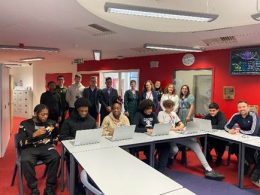Whether you are contemplating which degree program to study in college or have just achieved an economics degree and are looking for work, there are plenty of options once you have completed an applied economics degree. Applied economics is the study of economic theories and how they are applied in different, real-world circumstances. The aim is to help inform economic decisions and predict potential outcomes. With an applied economics degree, you can improve operations and processes in business and the quality of public policy practice. Here are different types of careers you can pursue with a degree in applied economics.
An overview of Economist Careers
An applied economics degree equips students with the ability to think critically about costs, incentives, human behavior, and benefits and help improve various fields with this knowledge. Students use econometrics and case studies to figure out how to improve practices already in place. As opposed to the study of economics, applied economics focuses on the practical side of things, and graduates gain the skills to put the economic ideas and theories into action. In turn, graduates with an applied economics degree, such as an online MSAE, often pursue employment opportunities as government or business economists. Economists in government use data collection and analytic skills to make predictions about the economy. Ultimately, government economists help advise policy-makers. The role of an economist in corporate settings often revolves around monitoring economic trends and assessing their impact.
Careers in Business
Those who have graduated with a degree in applied economics can apply for entry-level roles, such as a business analyst. Other jobs in business you can pursue include insurance underwriter, supply chain manager, and human resources specialist. A business analyst’s role involves assessing business needs to develop suitable solutions. Duties of an insurance underwriter include a risk assessment to help determine how insurance companies can provide coverage. At the same time, a supply chain manager uses their in-depth knowledge of economics to coordinate, organize and oversee processes involved in the production, acquisition, and distribution of goods within a company. Human resources is all about the employees in a business. A human resources specialist helps with the recruitment of new employees. They are involved with the screening process and interviews; some may also be involved with employee training and areas concerning compensation and benefits.
Government Careers
Applied economics graduates can achieve a variety of government roles within federal agencies, as well as in local and state governments. Potential job roles you could fulfill include tax revenue specialist and policy analyst. Economists can use their critical thinking, data analytics, and research skills, as their knowledge of macroeconomics, to make informed decisions regarding economic policies and tax law in the federal government. Within local governments, economists apply principles in microeconomics and can work directly with communities to help develop economies and improve social conditions. State government careers involve working with both communities and cities to develop a harmonious economic model.
Alternate Career Paths
There are plenty of career choices for applied economics graduates outside of the business world and government. With the knowledge and skills from your degree, you can pursue roles like a management consultant, financial analyst, and various roles in academia.









